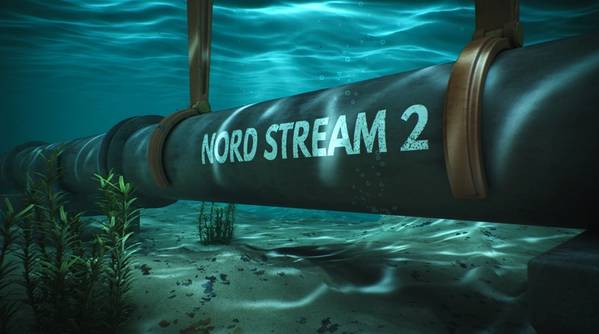
Nord Stream 2 AG said on Friday it had started filling its second pipe with natural gas, stepping up preparations to launch a project that has sparked global political tensions and is yet to get the green light from Germany.
"Like the first string (pipe), the second string will be gradually filled with gas to build the required inventory and pressure," the Swiss-based company said. The first pipe was filled with gas in October.
Pre-commissioning activities on the second pipe were completed successfully to assure its integrity, the company added.
Russia completed the construction of the dual pipeline in September. However, it is yet to obtain regulatory approval from Germany and the European Union, amid political tensions over a build-up of Russian troops on the Ukraine border.
Germany's energy regulator said on Thursday full certification of the project would not come in the first half of 2022.
Russia has called the delay "political," a criticism dismissed by Germany. nL8N2T22U6]
Pavel Zavalny, head of the energy committee in Russia's lower house of parliament, said on Friday that gas may start flowing via Nord Stream 2 to Germany as soon as in January, which was also denied by Berlin.
The Nord Stream 2 pipes, both 1,234-km long, have a combined annual capacity of 55 billion cubic metres, the same as the current Nord Stream, which lies almost in parallel on the bed of the Baltic Sea.
The launch of the project, designed to bypass Moscow's political foe Ukraine, would double Russia's pipeline capacity for gas exports in the Baltic.
Some experts and politicians have accused Russia of deliberately undersupplying Europe to win approval to begin flows through Nord Stream 2, contributing to gas prices spikes across the continent.
Russian gas exporter Gazprom has said it is meeting its contractual obligations to its European customers, while its key clients have said they haven't asked the company for more deliveries.
The benchmark Dutch front-month gas contract edged down 0.8 euros to 135 euros per megawatt-hour on Friday, not far off record highs reached in October.
The United States, as well as some European countries including Ukraine and Poland, have protested against the pipeline, which would deprive Kyiv of transit fees as well as increase Moscow's leverage over Europe.
Russia has said the project is purely commercial.
(Reporting by Vladimir Soldatkin and Oksana Kobzeva; Editing by Jason Neely and Mark Potter)



